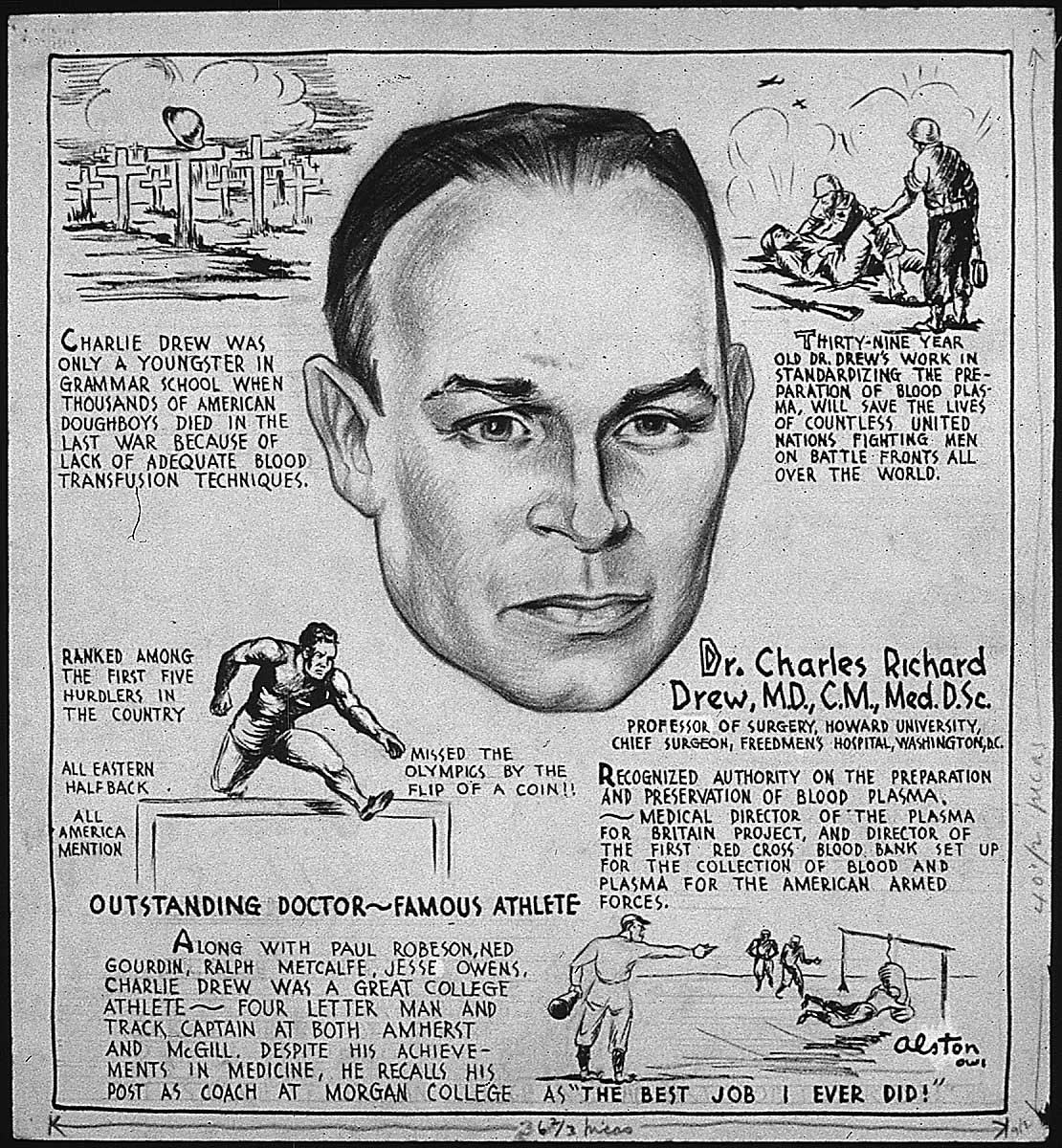Blood for Britain
Blood for Britain was written by McMillan for BBC4 Audio Drama and is based on Dr Charles Drew, an African American surgeon and a pioneering medical researcher in blood, who found in the 1940s that blood plasma had a much longer shelf life than whole blood and could therefore be imported from America to support Britain. But he was surrounded by bureaucrats more interested in red tape than saving lives; one official actually said that it would be an admission that the war was going badly for the Allies if plasma was obtained from the States. Blood for Britain revealed Drew’s struggles in the context of difficulties during the Second World War of getting enough blood to treat bomb casualties in Britain.
Thousands of people were literally bleeding to death after, for example, the flattening of Coventry, because of a lack of bottled blood. Nevertheless, Drew persevered in overcoming scientific and other obstacles and eventually received official recognition. He improved the administration, labelling, storage and use of samples, and enabled tens of thousands of lives to be saved.
Drew was a light skinned Black man, and experienced racism, with many White people insisting that they would ‘rather die than receive plasma from negroes’, which was based on the common belief that ethnic attributes could be transmitted through blood transfusion. Consequently, blood donation was racially segregated during this period. But Drew’s legacy is that the techniques he developed to produce and store blood plasma showed that these beliefs had no scientific grounding, and are still used today.
Blood for Britain was produced and directed by Pam Fraser Solomon, with Ray Shell as Dr Charles Drew, and other cast members included: Bill Hootkins, Nigel Davenport, Des McAleer, Ed Bishop, Sean Baker, and Shezwae Powell. Research was supported by Barbara Bethune Bosustow. It was broadcast on 8 October 2001. Blood for Britain was shortlisted for a CRE Race in the Media Award in 2002


